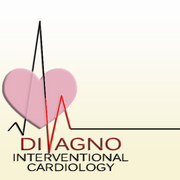An Introduction to Silent Heart Attacks

A silent heart attack is a cardiac event that comes with few noticeable symptoms. In fact, many sufferers experience no classic heart attack symptoms at all. For this reason, it can often be difficult to determine when, or if, an individual is having a silent heart attack. To better understand this condition and recognize potential signs, here is a brief introduction to silent heart attacks.
Differences From a Standard Heart Attack
A traditional heart attack is often accompanied by chest pain, breathing difficulty, abnormal heartbeat, and sudden dizziness or anxiety. But with a silent one, these more standard heart attack symptoms are exceedingly rare, if not totally nonexistent. In this regard, telltale symptoms are "silent," which is where the name comes from. But a silent heart attack is still a heart attack; in both, the coronary arteries restrict or block healthy blood flow to the heart, usually because of plaque buildup.
Signs
 Silent heart attack symptoms are, by their very nature, elusive and not readily comparable to more classic signs of a cardiac event. In instances where the sufferer experiences symptoms, they may mistake a silent heart attack for a cold or the flu, for muscular pain in the chest or back, or for nausea or indigestion. Extreme or prolonged periods of fatigue can also be an indicator of a silent heart attack.
Silent heart attack symptoms are, by their very nature, elusive and not readily comparable to more classic signs of a cardiac event. In instances where the sufferer experiences symptoms, they may mistake a silent heart attack for a cold or the flu, for muscular pain in the chest or back, or for nausea or indigestion. Extreme or prolonged periods of fatigue can also be an indicator of a silent heart attack.
Risk Factors
The same risk factors apply to both standard and silent heart attacks. Smoking, a family history of cardiac issues, and advanced age all put one at greater risk. Obesity, lack of exercise, and uncontrolled diabetes, as well as high cholesterol and high blood pressure, can contribute to silent heart attacks as well. Having one heart attack—silent, or otherwise—puts you at increased risk of having another.
Prevention
To prevent the likelihood of a cardiac event, maintain a well-balanced diet free from trans fats and sugars, full of leafy green vegetables and plenty of oily fish. Do at least 30 minutes of cardio exercise five times a week. If you smoke or chew tobacco, make a plan to quit. Have your blood pressure and cholesterol levels monitored regularly; if your numbers are high, consider medication.
Above all, stay attuned to your body. If you have any of the signs listed above and something doesn't feel right, always gets checked out by a doctor right away.
Dr. Leonard DiVagno and his team at DiVagno Interventional Cardiology, MD, PA, have been serving the Bergen County, NJ, area for more than 20 years. They can educate you on heart attack symptoms, help you minimize potential risks, and identify treatments for issues like heart disease and structural heart problems. Never put off getting help for a cardiac-related concern. Call (201) 845-3535 or visit DiVagno Interventional Cardiology online to schedule an appointment.
About the Business


